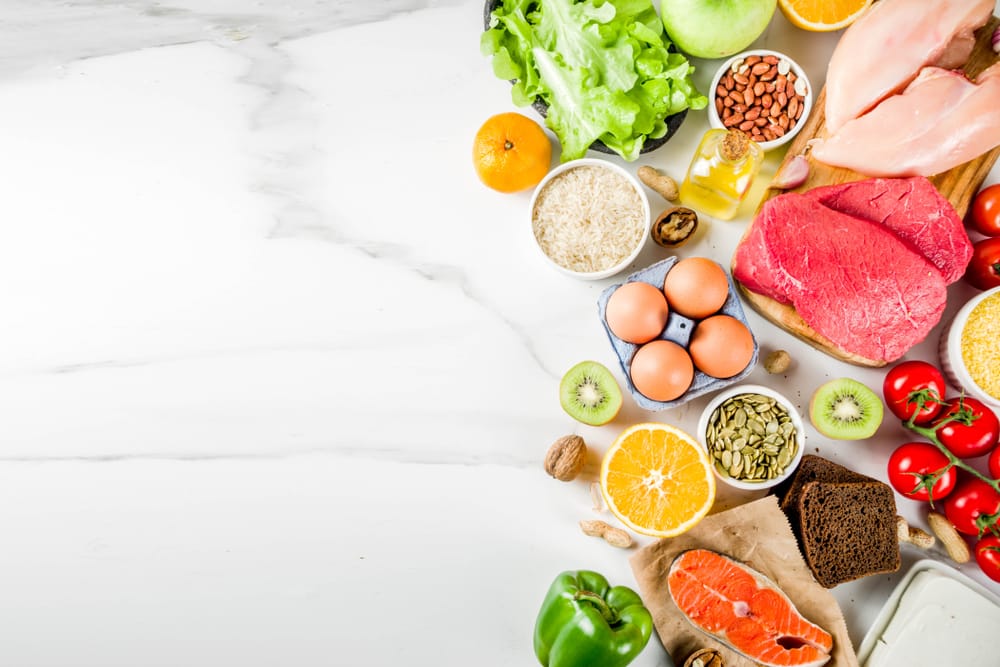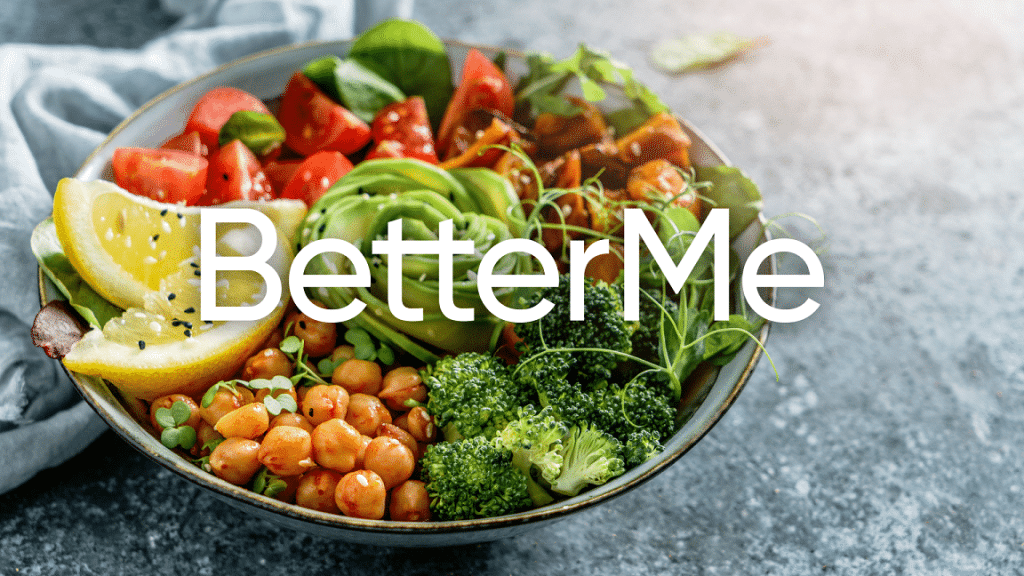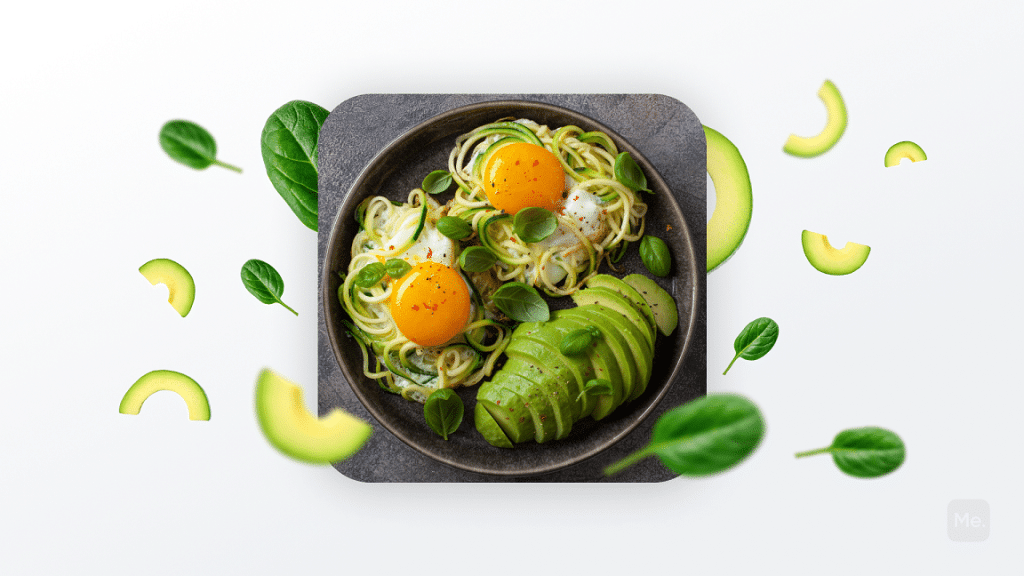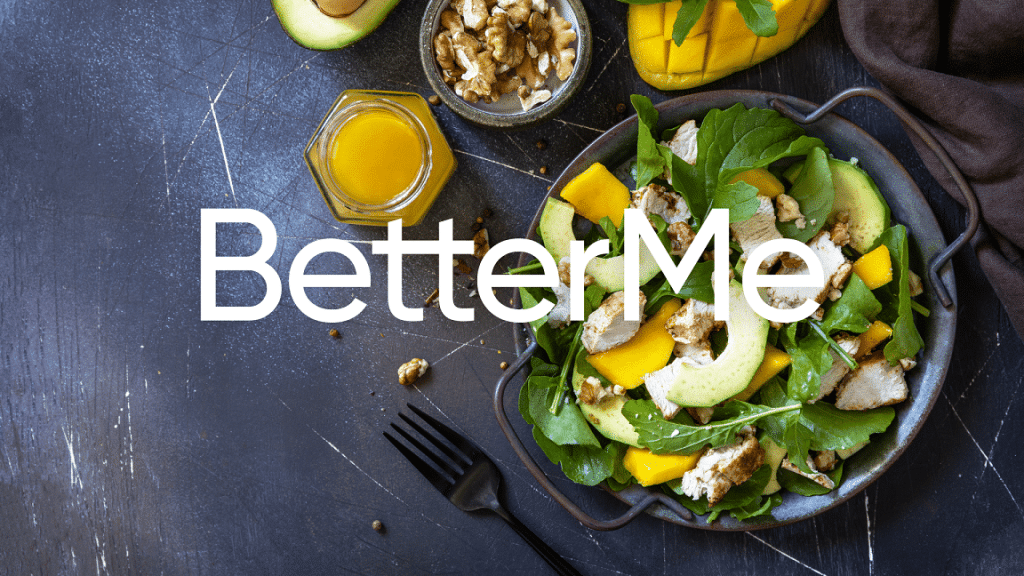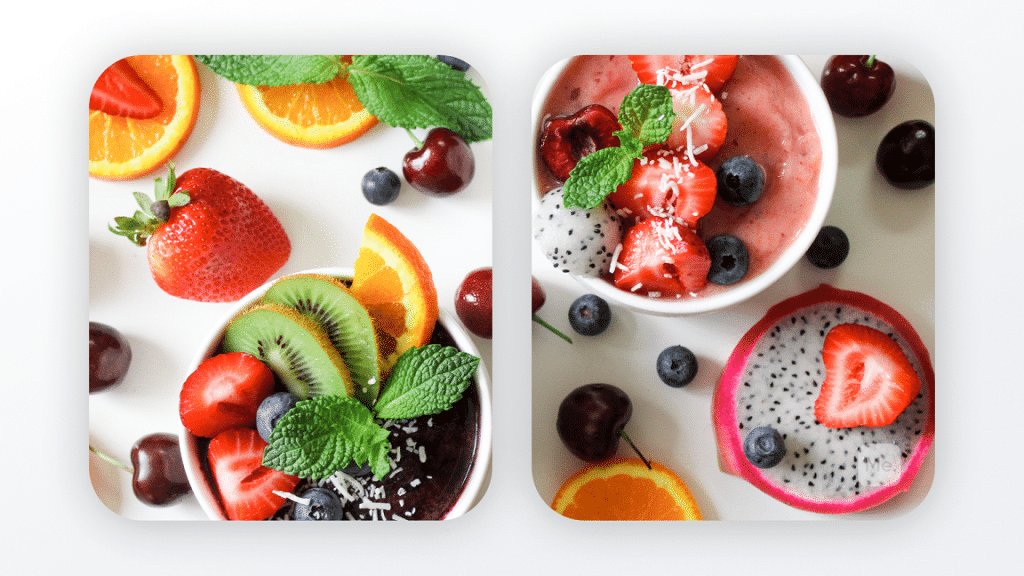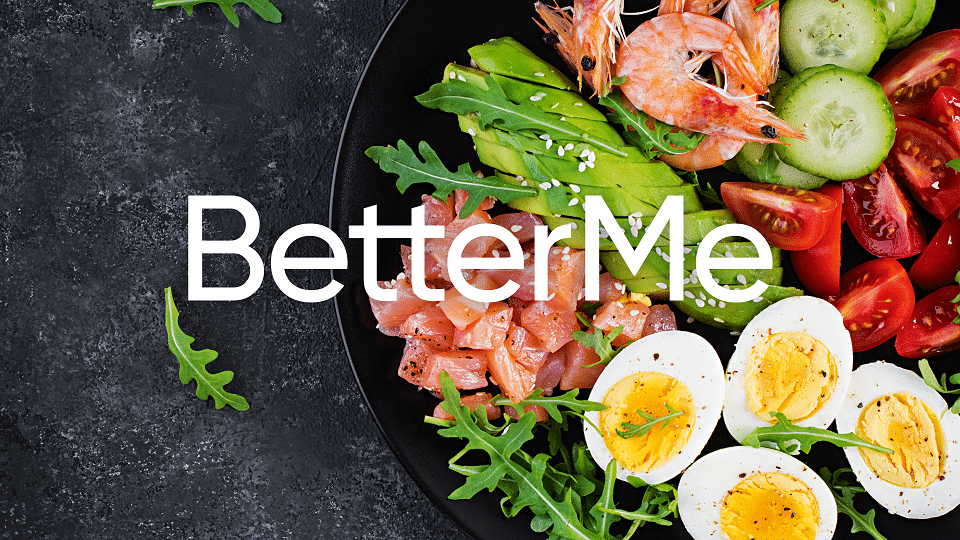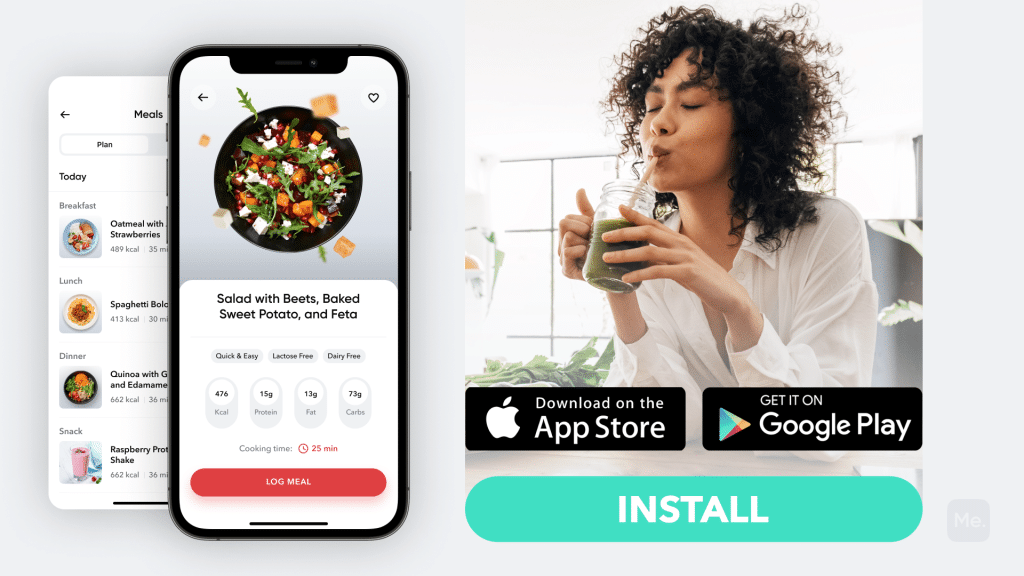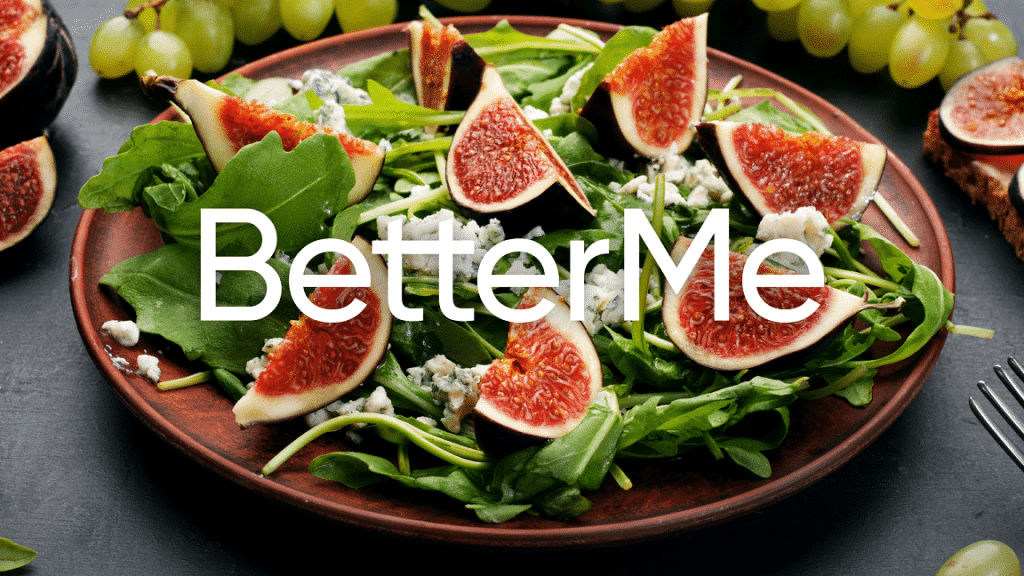Is one of your goals this year to start eating healthy to lose weight or generally have a healthier diet? If so, then you should consider creating a diet plan to help you achieve your goals. Eating more nutritious food is not only good for weight loss, but it also helps keep you healthy.
In this article we are going to give you tips on creating a diet and workout plan, show you how to start eating healthy, how to create a diet plan for weight loss, and tell you what to look for when considering ‘what diet is best for me’, and more.
What Is A Healthy Diet?
Before creating a diet plan you must first familiarize yourself with what is a healthy diet. According to the Centers for Disease Control and Prevention, a healthy diet is one that (5):
- Emphasizes on the consumption of fruits, vegetables, whole grains, and fat-free or low-fat dairy and dairy products.
- Includes healthy protein sources from lean meats, poultry, fish, beans, eggs, and nuts.
- Is low in saturated fats, trans fats, cholesterol, salt (sodium), and added sugars as these have been linked to several illnesses and obesity.
- Stays within your daily recommended calorie needs.
The World Health Organization explain this further by stating that (4):
- A healthy diet needs to protect you from not only malnutrition but also chronic illnesses including but not limited to diabetes, cardiovascular diseases, obesity, and cancer.
- Your sodium intake should be less than 5 g a day which helps prevent hypertension, and reduces your risk of cardiovascular illnesses like heart disease and stroke. Reducing your sodium intake also helps prevent diabetes and obesity not only in adults but also in teens and children as well.
- You should also limit your intake of added sugars to less than 10% of your total daily energy intake.
- When it comes to saturated and trans fats, WHO advises that your daily intake should be less than 10% and 1%, respectively.
Read More: The Fundamentals Of A Balanced Diet: Foods, Benefits, Weight Loss
Why Creating A Diet Plan Is Good For You?
You may have heard several people say that they are creating a diet plan for weight loss and wondered why they believe that this is important. Does it truly have any benefits? After all you could reduce your calorie intake to lose weight. While this is indeed true, creating a personal diet and exercise plan for weight loss goes a long way in ensuring that you stick to your plans for a healthier and more active lifestyle.
Here are some reasons why creating a diet plan for weight loss is a good idea (12):
1. It Helps With Effective Meal Planning
The concept of meal planning has gained popularity in recent years and all for good reasons. When you create a diet plan you know what to eat/buy which in turn, helps with meal planning.
Meal planning has been shown to help you save money, time, especially at night when you cannot take a break to cook, and it helps to prevent food waste (3).
2. Helps You Stick To Your Diet
Social gatherings are one of the main culprits that tend to make people slip off their eating plan. When you create a diet plan, you would be able to eat before a social gathering, carry snacks to picnics, or even ask for some dietary exceptions to be made for you which help you stick to your meal plan.
3. Helps You Track Your Food Intake Better
In weight loss, the emphasis on counting calories is quite high as it helps us to eat at a calorie deficit which leads to shedding those stubborn pounds. Creating a meal plan will help track how many calories you consume a day, meaning that you can adjust these amounts to help you reach your desired goals faster.
4. Helps With Portion Control
Portion control is another great tip for weight loss. A diet plan enables you to track not only what you eat, but also how much and how often you consume it, which further translates into you understanding and fixing your eating habits.
5. Discourages Snacking
Snacking is one of the biggest culprits of weight gain especially if done mindlessly. Creating a simple diet plan will dissuade you from snacking and encourage you to stick to a stricter schedule. Whether you choose to eat 3 or 6 times a day, a good diet plan ensures that you are satiated to a point that you do not need extra snacks.
6. Helps With Sustaining A Healthy And Balanced Diet
When you create a diet plan you may be shocked to realize that you tend to eat more unhealthy foods than healthy foods in a month. Creating a simple diet plan will help you shift the scales making sure that you are eating healthier most of the time.
7. Helps With Food Shopping
How many times have you gone to the grocery store to do your weekly shopping, only to come back to the house and realize that you mostly bought unhealthy snacks and no nutritious food? When you create a proper diet plan, you are able to set clear guidelines on what to buy, which makes your weekly food shop healthier and saves you money in the long run.
If you wish to free yourself from all the extra pounds that have been weighing you down for way too long, start using the BetterMe app and overhaul your entire life!
How To Create A Diet Plan For Weight Loss?
Before creating a simple diet plan that suits you, it is advised that you ask yourself the following questions. These questions are meant to help you decide what your eating plan will look like (6, 7):
-
What Are Your Goals?
If your goal is either to lose, add or manage weight, your diet plan needs to reflect this.
-
How Many Meals Would You Like To Have In A Day?
Some people prefer to eat the usual 3 meals a day with no snacks in-between while others prefer to include snacks in their day to day. On the other hand, some people enjoy smaller but more frequent meals, sometimes from 5 to 6 times a day.
-
How Much Fo You Like Cooking Or Rather How Much Time Do You Want To Spend Cooking?
If you do not want to spend time in the kitchen at every meal or even every day, allocate some meal/food prepping time in your diet plan. This will save you time and energy from cooking during the week.
-
Do You Require Snacks Throughout Your Day?
While some people can go through their days without reaching for a snack, snackers cannot live without having one or two snacks a day. If you like snacks, be sure to add them to your diet plan.
-
How Many Calories Do You Need To Consume To Reach Your Goals?
In weight management, gain or loss, calories are what make or break your plan.
If you are creating a diet plan to lose weight, then you must make sure that all the meals listed are on a calorie deficit of 500 to 1000 calories a day. If you want to gain weight then your meals should have at least 400 calories more and if you want to maintain your weight then your food energy intake should remain as it is.
Be sure to use a reputable calorie counter app like the BetterMe calorie counting app to help you calculate how much food energy you need in a day.
-
How Much Exercise Do You Do (Or Are Planning To Do)?
Your energy intake directly correlates with how much calories you consume a day. The more you exercise the more calories you need in a day and vice versa.
Read More: 6-Week Body Transformations Using A Mix Of Dynamic Exercises To Inspire You To Work Out!
-
What Are The Best Food Choices For Your Diet Plan?
When creating a diet plan we suggest making it as healthy as possible by making your diet very balanced. Make sure that your eating plan has the five major food groups, namely (13) fruits and vegetables, whole grains, low-fat dairy and dairy products, lean protein, and healthy fats. Eating whole foods helps to keep you fuller for longer, provides you with the nutrients your body needs, and helps you achieve your weight loss goals without too much hassle.
How To Create A Raw Food Diet Plan?
The raw food diet has been around for thousands of years and has slowly started making a comeback with its followers claiming that consuming raw food provides the body with multiple health benefits. They claim that this way of eating (8, 10):
- Aids with weight loss
- Reduces the risk of chronic illnesses
- Helps protect the environment
- Helps you save money
- Improves overall wellness
If you are looking to join this bandwagon, here are some things to know before creating a raw food diet plan.
What Foods Are Permitted
On the raw foods diet you are allowed to consume:
- All kinds of fruit and vegetables
- Grains and legumes. Since they cannot be had raw, they are prepared by either soaking or sprouting
- Raw nuts and seeds. Do not toast them. You can also consume raw nut milks and butters
- Cold pressed vegetable, seed, and nut oils
- Fermented, marinated, or pickled foods
- Raw eggs, meats, fish and dairy, if desired. If this is a bit much for you, you can opt to prepare the meat and fish through dehydration alone before consumption
What Foods Must Be Avoided
Just as the name suggests, only raw foods are allowed on the diet. This means that anything cooked, baked, roasted or processed in any way should not be eaten. Other foods not allowed on the raw food diet include, table salt, dairy products, coffee, tea, and alcohol, refined oils, sugars, and flour, etc.
Educate Yourself On The Pros And Cons Of The Raw Food Diet Plan
While this diet has been praised for supporting weight loss, reducing the risk of chronic illnesses and more, experts have also warned people against it. Some reasons that could make you weary of attempting this meal plan include:
-
It Increases Chances Of Food Poisoning
As stated above, most of the food on this meal plan is often consumed raw. If anything needs to be cooked, it cannot be cooked at a temperature exceeding 118 degrees Fahrenheit (or 48 degrees Celsius), which means that it will most likely be undercooked.
Raw or undercooked sea foods like shrimps, clams and fish have been known to cause food poisoning. Raw or undercooked eggs may contain Salmonella, while raw or undercooked meats contain harmful bacteria such as Salmonella, Listeria, Campylobacter and E. coli that can cause food poisoning (2).
Unpasteurized or raw milk is also considered unsafe as it could carry dangerous bacteria such as Salmonella, E. coli, Listeria, Campylobacter, and others that lead to food poisoning as well (9). Undercooked legumes will not only lead to food poisoning, abdominal pains, and gas, but they have also been proven to be toxic because of the lens protein phytohaemagglutinin (PHA) (1).
-
You May End Up Eating Too Little Calories
As you know, the raw food diet mostly relies on eating fruits and vegetables. While they are good for you in a balanced diet and are fantastic for weight loss, limiting your food consumption to these two categories is not in any way balanced. Fruits and vegetables are extremely low in calories, which will most likely lead to you not eating enough, and the eating plan does not provide great sources of carbs, and protein.
Yanking yourself back in shape has never been so easy with our game-changing fitness app! Start transforming your life with BetterMe!
What Diet Is Best For Me?
If you are looking to create a diet plan to help you lose weight, choosing the right diet to best suit you can be quite scary.
Here are somethings to consider when trying to pick the best eating plan for you (11):
-
What Diets Have You Done Before?
Look into different options to determine what you liked and disliked about them, which ones’ worked and which ones didn’t. How did they make you feel? Did you like the experience or was it utterly dreadful?
-
Your Budget
Not every eating plan will suit everyone financially as some are more expensive than others. Take into account how much you are willing to spend on your food budget.
-
Is It A Balanced Diet?
Some popular weight loss plans which have been praised for their results are not healthy or balanced at all which can lead to nutritional deficiencies and a slew of other problems. Try and ensure that your selected weight loss diet consists of all the major food groups.
-
Would Your Doctor Or Dietitian Approve Of Your Diet?
A mistake that many of us make when choosing a weight loss diet is not involving their doctor or dietitian in the process. Once you have settled on one or two diets that seem the best for you, make an appointment with your healthcare provider and run it by them.
They will take your medical history and current health status into consideration and will help you make the best decision. Better yet, before creating a diet plan for weight loss make sure to visit your registered dietitian and have them advise you on what to do. This option saves you a lot of time and unwanted headaches in trying to determine the best eating plan for you.
Steps To Creating A Personal Diet And Exercise Plan
Creating a diet and workout plan makes losing weight that much easier as combining a healthy eating plan and exercise leads to more weight loss in the long run. Now that you know how to create a meal plan, here are some factors to consider when making a workout plan.
Here are some steps to follow to create the perfect exercise plan for you:
- What are your goals? You must take a moment to figure out what you are exercising towards. Is it weight loss? Enviable six pack abs? Are you hoping to lower your blood pressure? Exercising and being active should be part of your everyday routine, regardless of your weight loss goals.
- Be smart about your goals. Take some time to meticulously plan out your workout regimen. Have specific goals that are attainable, can fit in your lifestyle and give yourself enough time to accomplish them.
- Determine your choice of workouts. Cardio, strength and resistance training, balance and flexibility exercises are all suitable options to help you achieve your goals. Choose your workouts depending on what works best for you.
- Create a schedule. How many times a week do you want to workout? If you workout 3 times a week, which exact days of the week will you be exercising?
Remember to rest. Your schedule must include at least 1 or 2 rest days a week to help you relax and give your muscles time to repair, thus preventing overtraining.
The Bottom Line
Whether you are hoping to lose weight or make healthier food choices, creating a diet plan is one of the best decisions that you can make. It helps you eat better which promotes weight loss and a longer lifespan on top of helping you getting organized. If you choose to use the above tips to make an eating plan, please consult a doctor or a dietitian to help make sure that you have made the best plan for your health.
DISCLAIMER:
This article is intended for general informational purposes only and does not address individual circumstances. It is not a substitute for professional advice or help and should not be relied on to make decisions of any kind. A licensed physician should be consulted for diagnosis and treatment of any medical conditions. Any action you take upon the information presented in this article is strictly at your own risk and responsibility!
SOURCES:
- Dry kidney beans need to be boiled (2013, u.osu.edu)
- Food Safety (2005, ncbi.nlm.nih.gov)
- Health benefits of meal planning (n.d., beaumont.org)
- Healthy diet (2020, who.int)
- Healthy Eating for a Healthy Weight (2021, cdc.gov)
- How to Design Your Own Diet (2009, webmd.com)
- How to Follow a Make-Your-Own-Rules Diet (2020, verywellfit.com)
- Some Like It Raw: The Deets on the Raw Food Diet (2020, greatist.com)
- The Dangers of Raw Milk: Unpasteurized Milk Can Pose a Serious Health Risk (2018, fda.gov)
- The Raw Food Diet: A Beginner’s Guide and Review (2017, healthline.com)
- Weight loss: Choosing a diet that’s right for you (2020, mayoclinic.org)
- Why Diet Plans Help Weight Loss (n.d., weightlossresources.co.uk)
- What are the five food groups? (n.d., foodstandards.gov.scot)
